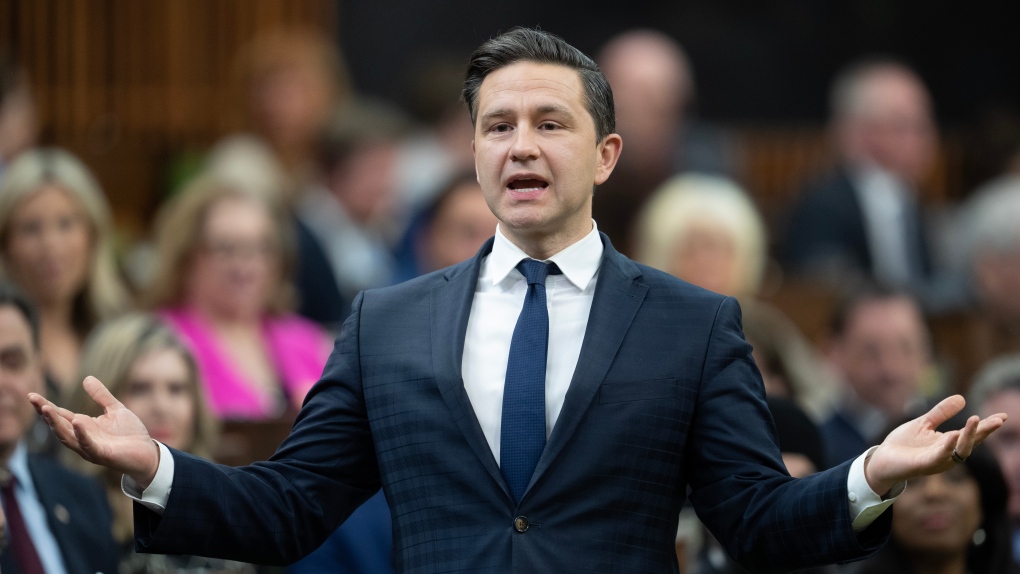Politics
Conservative Leader Poilievre Making Strides with Labour Groups in Ontario

Conservative Leader Pierre Poilievre is actively engaging with labour groups in Ontario, drawing inspiration from the successful strategies implemented by the Ontario Progressive Conservatives under Premier Doug Ford. Poilievre aims to leverage labour support to capture traditionally left-leaning seats across the Greater Toronto Area (GTA).
The Ontario Progressive Conservatives, led by Premier Doug Ford, Labour Minister David Piccini, and former labour minister Monte McNaughton, cultivated a robust labour coalition that played a pivotal role in their electoral victories in 2018 and 2022. By championing the rights of blue-collar workers and emphasizing investments in skilled trades, the PCs garnered support from unions typically aligned with the NDP and other left-wing parties.
While there are notable policy distinctions between Premier Doug Ford and Pierre Poilievre, the Conservative Party of Canada is looking to replicate the PC’s success in Ontario by embracing labour groups. Labour support has been instrumental in portraying the Conservatives as advocates for working-class individuals, a strategy that could sway traditionally left-leaning voters towards conservative ideals.
Despite potential internal tensions within the Conservative party regarding government intervention in labour policies, Poilievre is determined to bridge the gap and foster stronger relationships with unions. While some conservative factions prefer a more hands-off approach, Poilievre recognizes the significance of proactive policy-making to secure labour backing.
Poilievre’s proactive engagement with private sector union halls, industry associations, and training centers mirrors the successful groundwork laid by the Ontario PCs. Notably, MP Jamil Jivani‘s recent victory in the Durham byelection demonstrates the Conservatives’ ability to win over constituencies traditionally aligned with the Liberal or NDP parties.
Looking ahead, Poilievre must sustain his outreach efforts and prioritize policies that positively impact working-class individuals. Maintaining labour support will necessitate the introduction of pro-worker legislation, initiatives to enhance labour mobility across provinces, and investments in skills development and training.
As the federal Conservatives capitalize on their recent success in Toronto-St. Paul’s, Poilievre’s path to victory hinges on his ability to navigate the delicate balance between conservative ideals and the expectations of labour groups. With key figures such as Wellington Advocacy’s Benjamin Lamb emphasizing the importance of a hands-on government agenda for labour policy, Poilievre’s approach could determine the party’s fortunes in the upcoming elections.












